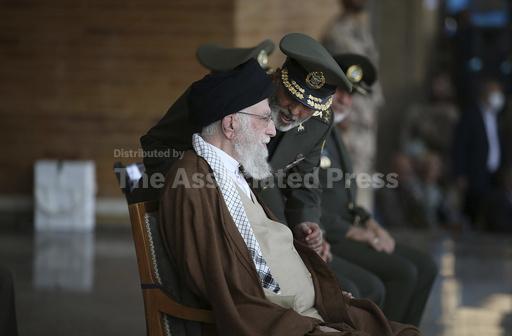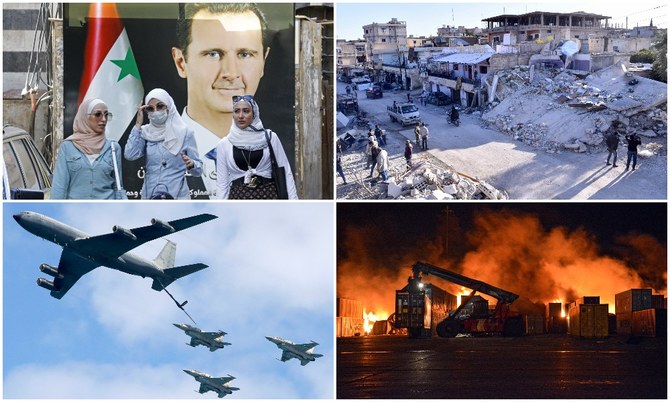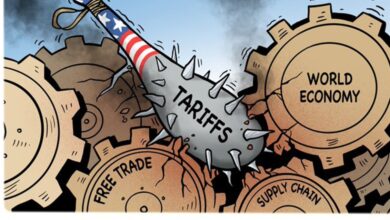Iran’s Role in the Israel-Hamas Conflict And The Growing Prospect Of Regional Escalation
The ongoing conflict between Israel and Hamas has raised questions about Iran's involvement and the potential for a broader regional conflagration. What is Iran's role in the conflict, the complex dynamics between Iran, Hamas, and other proxy groups, and the historical context of Iran-Israel relations?

Iran issued a social media statement on Saturday, cautioning about potential far-reaching consequences if Israel’s alleged “war crimes and genocide” continue unchecked.
The message from Iran’s mission to the United Nations followed reports that Tehran had conveyed a warning to Israel via the U.N. regarding a possible ground offensive in the Gaza Strip, which Hamas controls.
The social media post from Iran’s U.N. mission read, “In the event that the war crimes and alleged genocide by Israeli apartheid are not promptly halted, the situation could escalate beyond control, leading to significant repercussions. The responsibility for managing this situation rests with the United Nations, the Security Council, and the member states guiding the Council towards a resolution.”
Israel is preparing for a ground operation against Hamas in the Gaza Strip, an action prompted by a recent attack by the Iran-backed Palestinian group; the attack resulted in casualties and hostage-taking, marking a historic event in Israel’s history.
Israel previously subjected Gaza to an intense bombardment, placing the densely populated enclave, home to 2.3 million Palestinians, under a comprehensive blockade; according to Gaza authorities, this had led to a significant number of casualties.
The United States had been working to prevent Iran’s direct involvement in the conflict, with international diplomacy primarily focused on averting its escalation into a broader regional conflict, particularly affecting Lebanon, where clashes between Hezbollah, a group supported by Iran, and Israel have intensified.
U.N. Middle East peace envoy Tor Wennesland had meetings with Iran’s Foreign Minister Hossein Amir-Abdollahian in Beirut, as well as with Hamas leader Ismail Haniyeh in Qatar.
These meetings aimed to discuss diplomatic efforts to secure humanitarian access, release hostages, and prevent the conflict from spreading to neighbouring regions.
Regarding the report by Axios, the U.N. spokesperson stated that Wennesland’s meetings were centred on diplomatic solutions and not explicitly related to the escalating tensions between Israel and Iran.
Moreover, Hamas leader Ismail Haniyeh and Iran’s foreign minister met in Qatar to discuss the recent attack on Israel and expressed their commitment to continued cooperation in pursuing their shared goals, with Iran praising the attack as a historic victory against Israel’s occupation of Palestinian territory.
!role~Preview!mt~photo!fmt~JPEG%20Baseline)
What And How Does Iran Fit into the Conflict between Israel and Hamas?
Iran is not expected to launch direct attacks on Israel, but the potential for a regional conflict is a genuine concern.
Speculation about Iran’s involvement in Hamas’s recent attack on Israel has been widespread, sparking questions about whether Iran or its regional proxies will become engaged in the Israel-Hamas conflict.
While Iran has denied any role in planning the attack, its Supreme Leader, Ayatollah Ali Khamenei, publicly praised the incident.
However, Hamas has claimed sole responsibility for the attack on October 7, which resulted in significant casualties and hostages, making it a devastating event.

Iran And Israel
Although Iran and Israel have been in conflict since the 1979 Iranian revolution, there has never been a full-scale war between the two nations.
Iran does, however, support regional proxy groups, including Hezbollah, a Shia militant organization in southern Lebanon.
These proxies could potentially enter the conflict, although no concrete actions have been observed so far.
While there have been rocket launches from southern Lebanon towards northern Israel, but it remains unclear whether these were carried out by Hezbollah or another group.
Iran’s Support To Hamas
Iran provides material support to Hamas, along with training and funding, a fact acknowledged by experts.
It is said that proxy groups associated with a state actor, such as the Fatemiyoun Brigade in Syria, the Badr Organization in Iraq, and the Houthi rebels in Yemen, work more closely with the Iranian regime.
Nevertheless, attributing direct responsibility for the attack on October 7 solely to the Iranian government may not be accurate.

Hamas Complicated Relations with Iran
Hamas has a complex relationship with Iran; while it is a Sunni group, unlike most of the Shia groups Iran supports, it has a history of disagreements with Iran, notably over Iran’s support for the Assad regime during the early stages of the Syrian civil war in 2011.
A Historical Perspective on Iran and Israel
Historically, Israel and Iran maintained close economic and strategic ties, with Iran importing Israeli arms and Israel purchasing Iranian oil before the Iranian revolution in 1979.
Both nations also shared close relationships with the U.S., driven by their joint opposition to the Soviet Union and the spread of communism.
However, the Iranian revolution marked a significant shift as Iran’s hard-line Shia government viewed Israel as occupying Muslim land and the U.S. as enabling this situation.
According to this perspective, Israel was seen as a Western colonial outpost and Zionism as a form of imperialism.
Groups like Hezbollah in Lebanon and Hamas in the Palestinian territories emerged, partly in response to Israel but also due to the local constituencies they served.
Hezbollah, for example, was born out of various pressures within Lebanon, including Israel’s incursions in 1978 and 1982, aimed at eliminating Palestinian militant groups; this was set against the backdrop of a brutal, 15-year sectarian civil war in Lebanon.
Hezbollah not only carried out attacks against U.S. and Israeli targets in Lebanon but also provided basic support to people in impoverished Shia areas south of Beirut.
The support increased under the leadership of Hassan Nasrallah, who invested in social services, enhancing Hezbollah’s popularity.
Additionally, Hezbollah holds representation in Lebanon’s parliament, although its political support has fluctuated in recent elections.
The connection between Iran and Hamas is less straightforward; while Iran and Hezbollah provide financial assistance, training, and weapons to Hamas, Iran does not exercise direct control over Hamas’s actions, and coordination between them regarding specific plans is not always evident.

Possible Iranian Involvement In Future
Iran is unlikely to directly engage in the conflict, given the significant stakes involved, including access to $6 billion in assets.
The U.S. and Qatar have already restricted access to these assets, pending an investigation into Iran’s role in supporting Hamas’s capabilities and attack against Israel.
Thus, the likelihood of Iran directly intervening in the conflict is relatively low; however, if a situation were to arise where Israel or Iran felt compelled to strike each other directly, this could lead to broader regional implications, potentially involving not just Israel but also various Arab states, Gulf states, and Saudi Arabia.
In recent years, it has been Israel taking the offensive against Iran, engaging in covert operations and cyberattacks against Iranian infrastructure, targeting Iranian personnel and assets in Syria, and assassinating military commanders and nuclear scientists.
Iran has also pursued de-escalatory measures with the U.S. and other countries, such as agreeing to a prisoner swap in September, leading to the release of several U.S. citizens held in Iran in exchange for the release of five Iranians and access to $6 billion in assets for humanitarian purposes.
Regional actors like Saudi Arabia and the United Arab Emirates have made efforts to ease tensions with Iran and find solutions to manage their conflicts; hence, it is unlikely that they would jeopardize these diplomatic efforts by launching a direct attack on Israel.
However, Hezbollah could potentially become directly involved in the conflict, as evidenced by the 2006 war between Hezbollah and Israel in southern Lebanon.
In such a scenario, the U.S. would be present to provide support and serve as a deterrent, with the hope of exerting enough influence to prevent Hezbollah’s direct involvement.
Iran’s foreign minister, Hossein Amir-Abdollahian, recently met with senior Hezbollah leadership and Lebanese officials in Beirut.

He stated that continued war crimes against Palestine and Gaza would receive a response from the broader Axis, likely referring to Iran, Hezbollah, militant groups in Iraq and Syria, and Palestinian armed groups.
However, the exact implications of this response in the context of the conflict and ongoing de-escalation efforts remain unclear.
Most likely, groups ideologically aligned with Iran but having loose ties, such as Palestinian armed groups or groups in Syria and Iraq, could seize the opportunity presented by the conflict to launch attacks on Israel or U.S. positions in Syria and Iraq.
While there have been no recent attacks on U.S. forces in these regions as part of de-escalatory agreements, any breakdown of these agreements, such as the permanent freezing of the $6 billion held in Qatar, could provide Iran with a reason to encourage smaller allied groups to initiate attacks on U.S. positions.
The Last Bit,
While it is unlikely that Iran will directly launch attacks against Israel, the risk of a regional escalation remains a concern.
Iran’s complex relationships with various groups and the potential for proxy involvement create uncertainties.
Although the U.S. has deployed deterrent measures, Iran has much to lose if it gets directly involved, and the history of Iran-Israel relations, marked by ideological differences, further complicates the situation.
However, the likeliest scenario may involve ideologically aligned groups taking advantage of the conflict, potentially leading to attacks on Israel or U.S. positions in the region and careful diplomatic efforts and de-escalation measures will be crucial in averting a wider regional conflict.




